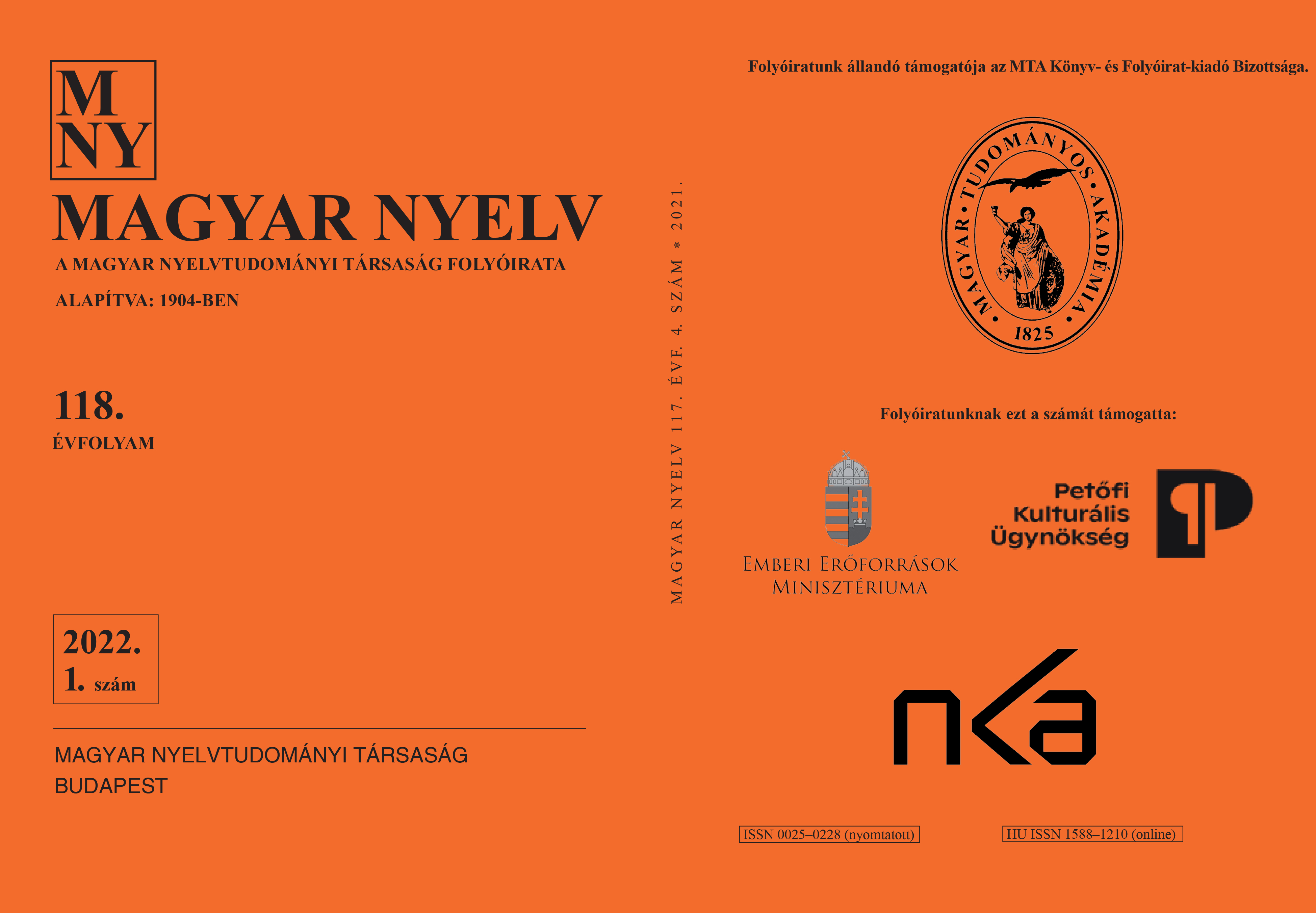Loránd Benkő, the head of department
DOI:
https://doi.org/10.18349/MagyarNyelv.2022.1.61Keywords:
Loránd Benkő, heading a department, direction of scholarship, organization of research, human and professional qualities, establishing a new school of thoughtAbstract
The author of this paper summarises his reflections on Loránd Benkő on the basis of personal experiences of the decades he spent at Benkő’s department and memories of some former colleagues. He points out that Loránd Benkő was an ideal head of department, a scholar of high esteem, and an excellent leader. He had clear ideas concerning the tasks and general issues of historical linguistics, the proper relationship to one’s mother tongue, and the moral obligations of a research worker. He was an excellent manager and editor who saw clearly that the time was ripe, in Hungarian linguistics, too, to establish communities of researchers and to compile large overall syntheses. He was a superb educator of successors. He demanded achievements rigorously but gave full freedom to his collaborators. He was a humane and wise leader, and his scholarly commitment and personal example were a source of inspiration.
Downloads
Published
Issue
Section
License
Magyar Nyelv is a Diamond Open Access periodical. Documents can be freely downloaded and duplicated in an electronic format, and can be used unchanged and with due reference to the original source. Such use must not serve commercial purposes. In the case of any form of dissemination and use, Hungarian Copyright Act LXXVI/1999 and related laws are to be observed. The electronic version of the journal is subject to the regulations of CC BY-NC-ND (Creative Commons – Attribution-NonCommercial-NoDerivatives).
The journal permits its authors, at no cost and without any temporal limitation, to make pre-print copies of their manuscripts publicly available via email or in their own homepage or that of their institution, or in either closed or free-for-all repositories of their institutions/universities, or other non-profit websites, in the form accepted by the journal editor for publication and even containing amendments on the basis of reviewers’ comments. When the authors publicize their papers in this manner, they have to warn their readers that the manuscript at hand is not the final published version of the work. Once the paper has been published in a printed or online form, the authors are allowed (and advised) to use that (post-print) version for the above purposes. In that case, they have to indicate the exact location and other data of the journal publication. The authors retain the copyright of their papers; however, in the case of an occasional secondary publication, the bibliographical data of the first publication have to be included.



